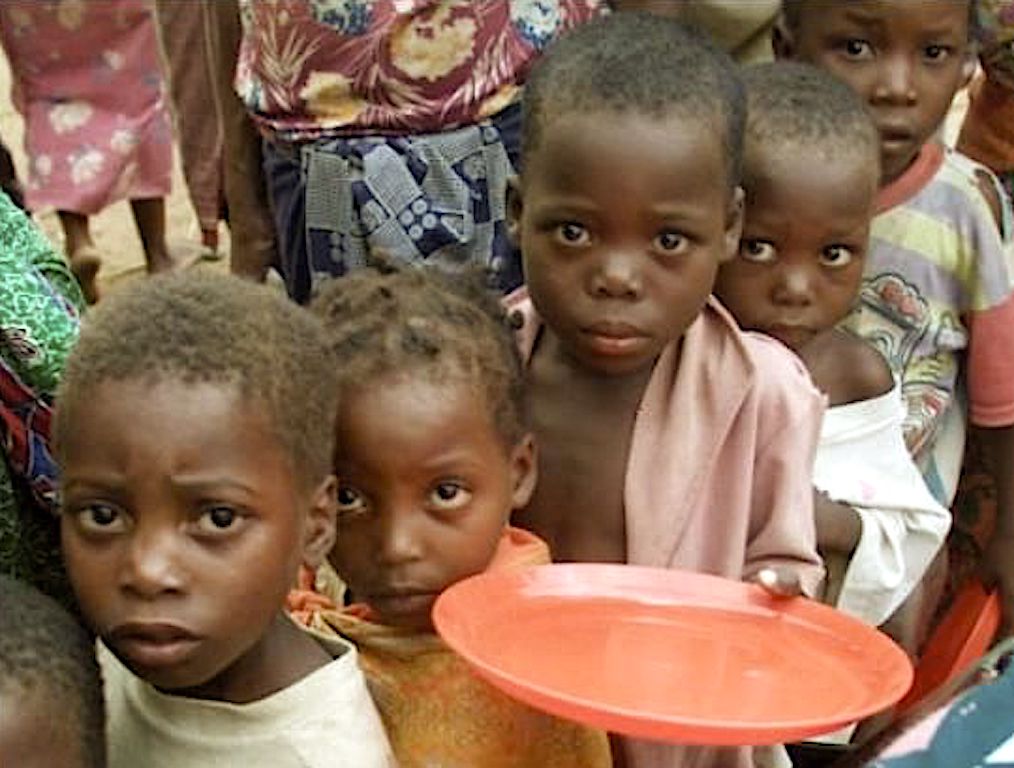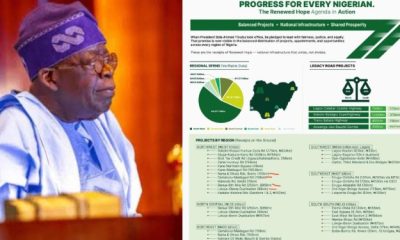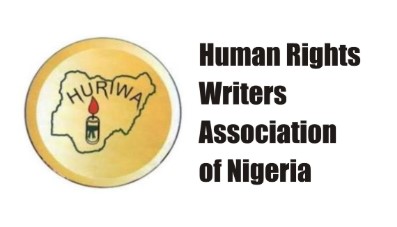Business
Nigerians face tougher days ahead as hunger, inflation bite harder
Published
2 years agoon

Nigerians face tougher days ahead as spiralling nationwide hunger resulting from untamed inflation, food insecurity and shrinking purchasing power worsen under the President Bola Ahmed Tinubu administration.
Tinubu’s economic team, namely the Minister of Finance, Olawale Edun, the Minister of Budget and National Planning, Atiku Bagudu, the Governor of Central Bank of Nigeria, Olayemi Cardoso, look overwhelmed by the country’s challenges, with current interventions yet to address the burgeoning hardship.
This is the situation in the last eight months as Nigerians suffer the hardship created by Tinubu’s policies of fuel subsidy removal and Naira floating at the foreign exchange market.
The Naira increased to N1,534.39 per US dollar at the FMDQ foreign market on Monday from N460.702, which it traded in May last year when President Tinubu took the oath of office.
This was further worsened with the removal of fuel subsidy, which saw the price of fuel rise to over N550 per litre from N238 in May 2023.
Also, the continued soaring inflation rate stood at 28.92 per cent in December, while food inflation increased to 33.93 per cent.
Consequently, since then, the daily increase in prices of foods, goods and services has been a common slogan in marketplaces in Nigeria, which is exacerbated by the fluctuation in the forex market in a country heavily dependent on imports.
Mrs Amina Jibrin, a small-scale trader in Dawaki, Abuja, said she may be forced to quit business because she no longer makes gains.
“Every day we go to the market, the prices of items always increase. We cannot afford to buy goods in the market. It will be as if you went to the market and misplaced your money. I may quit my business because I no longer make any money”, she said.
A Lagos resident, Mabel Rufus, lamented that the rising prices of food items was biting hard on her family.
READ ALSO: Tinubu commends Super Eagles after AFCON final
“Fresh Tomatoes is a no-go area. In most places, onion is three for 300, for the little sizable one. Egg, a crate is almost N4,000, something in the range of N2000 a few months ago.
“The situation is affecting us seriously. Salary can no longer cater for food, let alone other needs. We are dying in this country under Tinubu”, she said.
The International Monetary Fund, IMF, in its recent report titled ‘Review of Nigeria’s Post Financing Assessment’ by the IMF Executive Board, warned that Nigeria is experiencing. a deepening economic crisis amid the rising cost of living, amplifying the plights of the citizenry.
A renowned economist and former President and Chairman of the Council of Chartered Institute of Bankers, Prof Segun Ajibola, blamed the situation on the badly skewed structure of the Nigerian economy.
The economist said that beyond rhetoric, the economy managers should immediately drive import substitution strategies to address the Nigerian economy’s challenges.
“The genesis of the current spiral inflation rests in the badly skewed structure of the Nigerian economy. An economy that is monolithic and hangs its foreign exchange earnings on a primary gift of nature- oil, is susceptible to price instability as it may not have the buffer to mellow down prices, which are said to be sticky downwards.
“The insatiable appetite for imported consumables further compounds Nigeria’s situation. Basic needs such as food, medicine, raw materials, and spares are largely imported. The local currency, the Naira, depreciates rapidly for the reasons mentioned. All these put pressure on local prices daily.
READ ALSO: Save Nigerians from starvation, Anglican Bishop Ndukuba tells Tinubu
“Beyond rhetoric, the managers of the economy should drive import substitution strategies effectively. The idea of devoting much attention to sharing the available foreign exchange among contending users amid the local currency’s dwindling fortunes can only worsen matters.
On his part, the CEO of SD & D Capital Management, Mr Idakolo Gbolade, said the government must consider a price-fixing policy for some food items and monitor excessive profit by traders.
He noted that the country should look inwards in the long run and ensure the agricultural revolution plan is tailored towards self-sufficiency.
He added that staple food items such as rice, beans, and millet imports should be banned.
“The rising cost of food items can be attributed to the continued depreciation of the Naira. The US dollars are exchanged on the Nigeria customs portal for $1 – N1,380; the official rate is close to that. On the black market, it is exchanged for $1- N1,470.
“The cost of food prices is directly proportional to the strength of the Naira, and most government policies are taking too long to be formulated.
“The government had directed the release of 102 million Metric tonnes of grains from the strategic grains reserve, but that measure is not enough to bring down food prices.
“The economy needs to be diversified from being import-dependent to export-oriented to make the country recover the lost opportunities over the years”, he said.
You may like


Tinubu’s ‘Infrastructure Equity’ report under fire for misleading regional allocations


NMDPRA – Nigerians spend N1.3tn on petrol in June amid soaring energy costs


HURIWA slams EFCC as Tinubu’s attack dog, Says Tambuwal’s arrest is intimidation tactic against opposition


NCAA denies double standards in KWAM 1, Emmanson airline incidents


Tinubu asks governors to prioritize grassroots welfare


Tinubu vows to tackle ₦4 trillion power sector debt, seeks patience from GENCOs
Trending

 Health5 days ago
Health5 days agoDeclassified CIA memo explored concealing mind-control drugs in vaccines

 Entertainment1 week ago
Entertainment1 week agoSimi addresses resurfaced 2012 tweets amid online backlash

 Crime6 days ago
Crime6 days agoSenior police officers faces retirement after Disu’s appointment as acting IGP

 Education1 week ago
Education1 week agoPeter Obi urges JAMB to address registration challenges ahead of exams

 Health1 week ago
Health1 week agoNAFDAC issues alert on suspected revalidated SMA Gold infant formula

 Comments and Issues7 days ago
Comments and Issues7 days ago20 Critical Fixes to Save Nigeria’s Democracy from Electoral Fraud

 Football7 days ago
Football7 days agoMartínez ruled out of Everton clash with calf injury

 Latest6 days ago
Latest6 days agoICPC yet to respond to El-Rufai’s bail request as arraignment date looms

